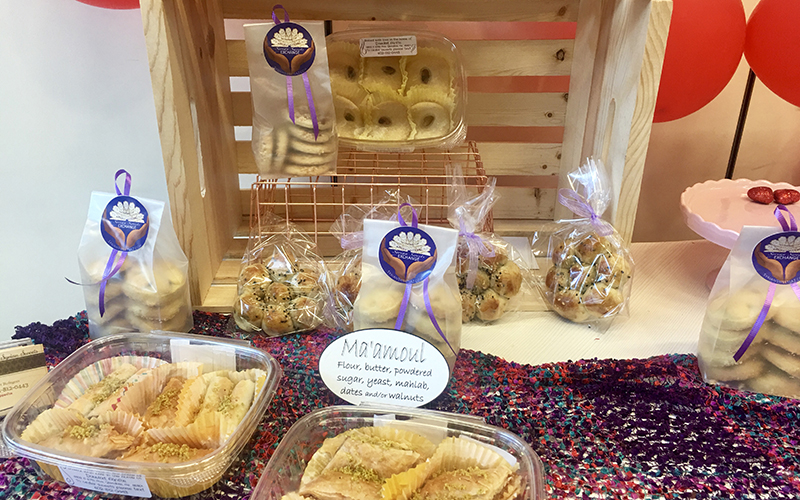PHOENIX – Pop-up shops have become increasingly common on the American shopping scene over the past decade, with such big name retailers as Amazon and Spirit Halloween setting up the temporary shops. But more recently, smaller businesses and nonprofit organizations have been trying to take advantage of this trend.
One example was the Global Market, which operated in CityScape in downtown Phoenix in February. The pop-up market brought together the food and handmade crafts of refugee women living in Arizona.
Luma Abdulbaqi, a refugee from Iraq, worked at the Global Market and creates handmade and personalized mirrors, a hobby she has had since she was in high school in her hometown of Baghdad.
“I’ve always liked the arts, and when I came to Arizona, my husband encouraged me more to start doing this job,” she said.
The pop-up market, put together by a team of three Arizona State University students, was a collaboration between three local nonprofit organizations: the Syrian Sweets Exchange, the American Muslim Women’s Association of Arizona and RISE (Refugee Integration, Stability and Education).
Allya Al-Maadeed, who led the ASU students for the collaboration, said the short-term nature of the pop-up concept was attractive as a model when bringing these three groups together because it helped to limit the risk of starting a business.
“We had limited funding,” Al-Maadeed said. “So to them, it will be very hard to sustain a store for 12 months.”
That low-risk aspect is key, said Ashley Vizzerra, programs manager for the Arizona Small Business Association. She echoed Al-Maadeed’s sentiments that a pop-up is a smart way for small businesses and nonprofits to get their feet wet before fully jumping into the world of business.
“A lot of these business owners have great ideas,” Vizzerra said, “but they don’t really know how the community is going to receive their idea, so this pop-up shop concept allows them to really test the market.”
Organizers said the market, which closed Feb. 28, was a financial success, but for Abdulbaqi, she’ll most miss the lasting relationships she built with the other refugee women.
“I will be crying because I love to work with them, and I love to look at them every time when I come,” she said. “It’s amazing.”
